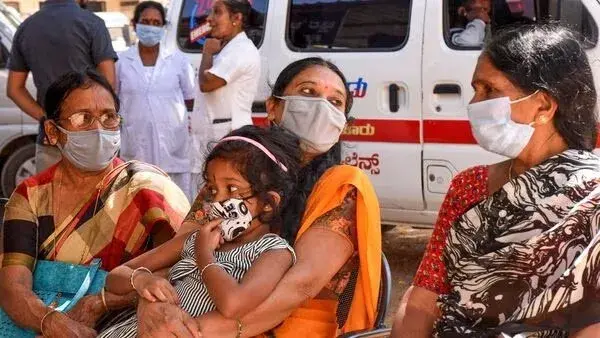Sheena Johnstone discussed various possibilities for Nursery Story in the Indian market.
‘The standard of people speaking and the group discussions and everything has been really great” said Sheena Johnstone, Founder & CEO, Nursery Story at the ‘New Normal – Education Leadership Summit & Awards 2024’ on 10th February 2024 at Crowne Plaza Ahmedabad City Centre, Ahmedabad, Gujarat hosted by ArdorComm Media Group. How do you think nursery story will impact the lives of individuals when it comes to teaching their toddlers? Nursery story is an amazing way for teachers to communicate exactly what’s happening during the day. Things like, what they’re eating, what they’re drinking, and if they are going to the toilet. Also, they can click pictures and share and instantly with parents. So, the parents don’t feel like they’re missing out on anything, and then the child can continue because they know what they have eaten, what to expect, and what are the things they have learned throughout the day with the child. How did this idea come to you—integrating AI and technology for the nursery kids and helping their parents to give more attention and more time to the kids? So, I have three grandchildren, my youngest, when she was starting nursery, I was shocked by the little information that we got. We didn’t get any information on her, she had a great day, and that was it, no information about the details of the day like what she was doing, what she was playing with, and that’s when the idea came. There had to be a better way of communicating. When you can order a pizza on a tablet, why can’t you have your child’s information when your child is so important to you. Now you have that information during the day and I think for a parent it is vital. Is Nursery Story planning any future projects or any more software like this? The wonderful time that we had here, the people that we have met, our partners in India also we have Indian developers and a company here that developed our product, So they have suggested that there was a need in India for this kind of product, and we have been delighted at the uptake, the people that we have spoken to, and the excitement it has created. So India will be doing a lot more business. Can we expect this to be worldwide or just for India? I hope so, but India is a very big market, and we have just been delighted to do our best for the all Indian people here and to produce and continue producing a software that they need. What was the overall takeaway from this event? It’s just been amazing the standard of people speaking and the group discussions and everything has been really great. The quality of the speaker, the university lecturer, has also been quite amazing.
Sheena Johnstone discussed various possibilities for Nursery Story in the Indian market. Read More »





